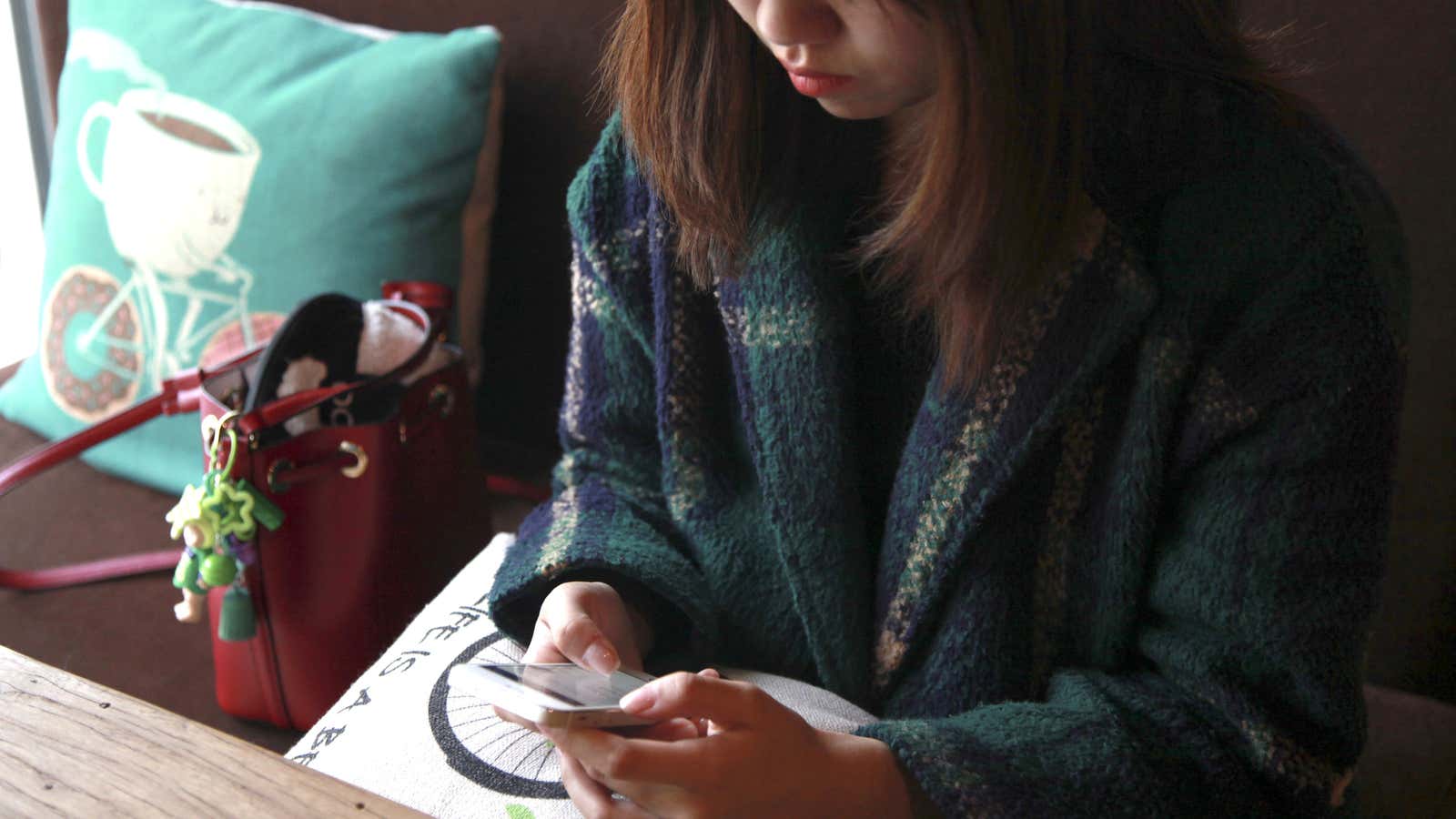We’ve all seen it happen: A nasty argument threads out under a news article you’ve posted, or a Facebook friend posts a divisive meme or bigoted opinion. Acquaintances, colleagues, close friends, and family members emerge from the ether to argue that women are, in fact, genetically inferior when it comes to tech; that the #metoo campaign is a complete witch hunt; that there is no such thing as white privilege.
Those discussions, once tempered by politeness at the dinner table or the bar, now take place at all times of the day and night: in the morning before you start work, during your lunch break, on your commute home, or while you’re winding down to go to bed. People are braver and likely be meaner online—without the moderating influence of real-life social norms. Facebook itself has acknowledged that scrolling through its news feed isn’t always conducive to a feeling of well-being.
Social media has changed friendships forever. We craft our tribes in the digital space, we meet new people online, and we use these platforms to nurture relationships—whether it’s a distant work acquaintance or a high school bestie.
On one hand, social media can show you a new, intimate side to the people you know—on the other, you won’t always like what you see. You sit there, finger hovering over the “unfriend” button, but you can’t quite do it.
Why not?
In some ways, social media has actually made it harder to sever relationships over politics or call out toxic behavior. Studies have shown that we are actually more likely to unfriend someone who spams our newsfeed with asinine photos of food or boring status updates than someone who puts up divisive political posts.
There’s some logic to this. Scrubbing your social media feeds of views you disagree with has its own pitfalls. Although we’re hardwired to be friends with people who share the same values or are like-minded, there’s always the danger of creating our own echo chambers—in which our own beliefs and information are amplified and echoed back, unquestioned and unchallenged.
And of course, unfriending an actual friend, family member, or colleague is difficult to do, in no small part because it can have real life repercussions. These are the people you meet for drinks or go to the theater with, the ones you have cooked dinner for, the ones who lift you up when you are down. So severing ties isn’t as simple as blocking some troll on Twitter—by unfriending online, you are often saying goodbye to the whole package. You’re making yourself harder to get in contact with, and blocking them from seeing your personal photos or what you’re up to. You’re drawing a line in the sand.
It’s a conundrum we find ourselves in more and more often these days. Politics have become more divisive than ever over the last few years, and at the core of many of these disagreements are fundamental questions about identity: race, gender, and nationalism—as seen in Britain’s vote for Brexit, the rise of populist parties across Europe and Asia, and the election of Donald Trump as US president.
Sexist, racist, and xenophobic views can now hide behind these political movements, cloaked in euphemisms like the “alt-right” or “men’s rights” or #alllivesmatter. Meanwhile, the militant left can be just as toxic and derisory as the far right.
Over the last few years, I have become more brutal in severing ties with friends online. Life too short to waste precious time on people you don’t enjoy being around, and it’s also important to take an active role in stamping out intolerance and hate.
The philosopher Karl Popper perfectly summed up the issue with his “paradox of tolerance” in 1945. Effectively, if society or a community is tolerant without limit, he argued, then eventually the ability to be tolerant will be destroyed by the intolerant. The only way to defeat this is by being “intolerant of intolerance.”
But where to draw the line? One useful distinction to make, as Jennifer Sullivan argued in the Huffington Post, is that it’s not politics per say that you unfriend someone over. It’s humanity, honesty, kindness, decency.
The absolute red line should be clear when a friend actively discriminates by race, religion, gender, sexuality, or origin. Beyond that, when a person is irrational, closed to debate or discussion, or willfully misinterpreting, they’re not behaving with humanity. Friends who bully, cherry-pick and dangerously misrepresent data, or throw around accusations that others are bad people or bad friends are not behaving with honesty or decency.
It’s difficult, of course, to unfriend the person who made you a cake that one time, or gave you a ride home, or left a nice message on a holiday photo. Even more difficult if you’ve known them since school, or since birth. But your social media feeds, today, make up an essential part of your community. It’s worth considering what values you’ll enforce in that community.
